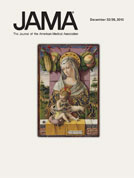 Tilburg University in the Netherlands has suspended the prominent social psychologist Diederik Stapel over concerns that he fabricated data in his published studies. According to a translation of a press release from the school, Stapel, professor of cognitive social psychology and dean of Tilburg’s School of Social and Behavioral Sciences, “has committed a serious breach of scientific integrity by using fictitious data in his publications.”
Tilburg University in the Netherlands has suspended the prominent social psychologist Diederik Stapel over concerns that he fabricated data in his published studies. According to a translation of a press release from the school, Stapel, professor of cognitive social psychology and dean of Tilburg’s School of Social and Behavioral Sciences, “has committed a serious breach of scientific integrity by using fictitious data in his publications.”
The release says the rector of Tilburg has set up a committee to investigate Stapel’s manuscripts and report back by October. Heading the panel is W.J.M. Levelt, former* president of the Royal Dutch Academy of Sciences and professor emeritus at the Radboud University in Nijmegen.
What the release does not specify, however, is which of Stapel’s many publications — a Medline search comes up with at least 45 bearing his name — are implicated. Continue reading Dutch university investigating psych researcher Stapel for data fraud








